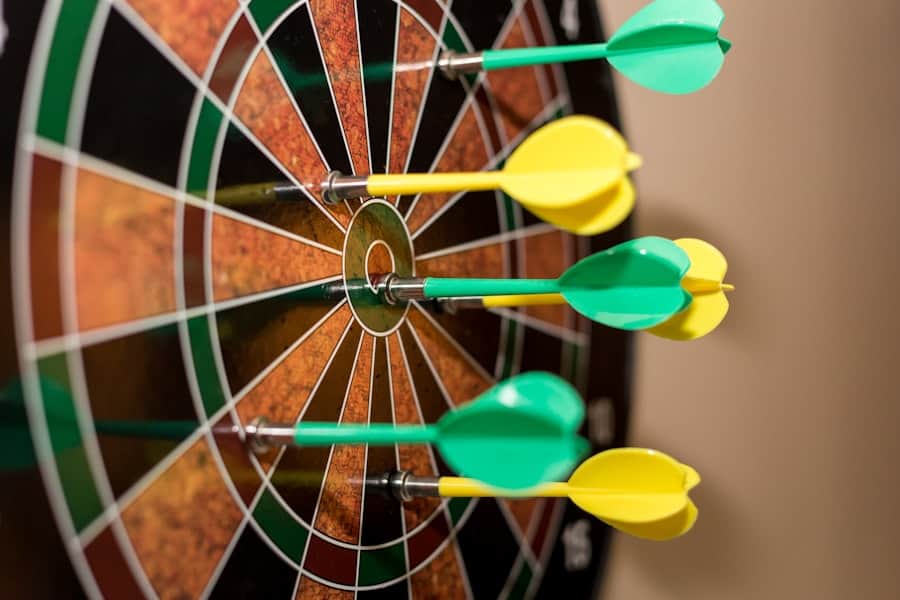The integration of social media into online gaming has transformed the landscape of how players interact with games and each other. Over the past decade, platforms like Facebook, Twitter, and Instagram have become essential tools for game developers and players alike. This shift has been driven by the increasing ubiquity of social media in everyday life, where sharing experiences and connecting with others has become second nature.
Game developers have recognized this trend and have begun to incorporate social features directly into their games, allowing players to share achievements, stream gameplay, and connect with friends seamlessly. As a result, many modern games now feature built-in social media functionalities that allow players to post updates, share screenshots, and even broadcast their gameplay live. This integration not only enhances the gaming experience but also serves as a powerful marketing tool for developers.
By enabling players to share their experiences on social media, games can reach wider audiences organically, as friends and followers are exposed to content that piques their interest. The rise of social media integration in online gaming is not merely a trend; it represents a fundamental shift in how games are designed and marketed, creating a more interconnected and engaging environment for players.
Key Takeaways
- Social media integration has become increasingly prevalent in online gaming, allowing players to connect and share their gaming experiences with friends and followers.
- Social media has a significant impact on player engagement, as it provides a platform for players to interact, compete, and collaborate with each other.
- Social media features such as sharing achievements, inviting friends to play, and live streaming enhance the gaming experience by fostering a sense of community and social interaction.
- Social media plays a crucial role in building online gaming communities by facilitating communication, organizing events, and creating a sense of belonging among players.
- Online games can leverage social media for in-game rewards and achievements, encouraging players to share their progress and accomplishments with their social networks.
The Impact of Social Media on Player Engagement
Social media has significantly influenced player engagement by providing new avenues for interaction and community building. Players are no longer confined to the game itself; they can engage with fellow gamers through various platforms, discussing strategies, sharing tips, and forming friendships that extend beyond the virtual world. This level of engagement fosters a sense of belonging and community among players, which is crucial for maintaining interest in a game over time.
For instance, games like “Fortnite” and “Call of Duty” have leveraged social media to create vibrant communities where players can share their experiences and connect with others who share their passion. Moreover, social media allows developers to receive real-time feedback from players, which can be invaluable for improving game mechanics and addressing issues. Developers can monitor discussions on platforms like Reddit or Twitter to gauge player sentiment and identify areas for enhancement.
This direct line of communication not only helps in refining the gaming experience but also makes players feel valued and heard. When players see that their feedback leads to tangible changes in the game, their engagement levels increase, creating a positive feedback loop that benefits both the community and the developers.
How Social Media Features Enhance the Gaming Experience

The incorporation of social media features into online gaming has enriched the overall gaming experience in numerous ways. One significant enhancement is the ability to share in-game accomplishments instantly. Players can post screenshots or clips of their achievements on platforms like Instagram or TikTok, showcasing their skills and creativity to a broader audience.
This not only serves as a form of self-expression but also inspires others within the community to strive for similar accomplishments. The competitive nature of gaming is amplified when players can publicly display their successes, leading to increased motivation and engagement. Additionally, social media features often facilitate collaborative gameplay experiences.
Many games now allow players to form teams or guilds that can communicate through integrated chat systems or external platforms like Discord. This fosters teamwork and strategy development, as players can coordinate their efforts in real-time. The ability to share strategies or discuss game mechanics on social media also enhances the learning curve for new players, making it easier for them to integrate into established communities.
As a result, social media features not only enhance individual gameplay but also promote collaboration and camaraderie among players.
The Role of Social Media in Building Online Gaming Communities
Social media plays a pivotal role in the formation and sustenance of online gaming communities. These platforms provide a space where players can gather, share experiences, and discuss their favorite games. Communities often form around specific titles or genres, creating dedicated spaces for fans to connect.
For example, the “World of Warcraft” community thrives on platforms like Facebook and Reddit, where players share tips, organize raids, and discuss lore. These interactions foster a sense of belonging that is essential for long-term player retention. Furthermore, social media allows developers to engage directly with their player base, creating a two-way communication channel that strengthens community ties.
Developers can announce updates, solicit feedback, and even host events through these platforms. This level of engagement helps build trust between developers and players, as the latter feel more connected to the people behind the games they love. Additionally, community-driven events such as tournaments or fan art contests often gain traction on social media, further solidifying the bonds within these gaming communities.
Leveraging Social Media for In-Game Rewards and Achievements
The integration of social media into online gaming has opened up innovative ways for developers to reward players for their achievements. Many games now offer incentives for sharing accomplishments on social media platforms. For instance, players might receive exclusive in-game items or currency for posting about their gameplay experiences or participating in community challenges that require social sharing.
This not only encourages players to engage with the game but also promotes the title across various social networks. Moreover, these rewards can create a sense of competition among players as they strive to outdo one another in showcasing their achievements. Games like “Apex Legends” have successfully implemented such systems by encouraging players to share their best moments online while offering rewards for doing so.
This gamification of social sharing not only enhances player engagement but also serves as an effective marketing strategy, as shared content can attract new players who may be intrigued by what they see.
The Influence of Social Media on Multiplayer and Cooperative Gameplay

Social media has profoundly influenced multiplayer and cooperative gameplay by facilitating communication and coordination among players. In many online games, effective teamwork is crucial for success, and social media platforms provide the necessary tools for players to strategize together. For example, games like “Overwatch” or “League of Legends” often require precise coordination among team members to achieve victory.
Players frequently use platforms like Discord or Twitter to discuss tactics before matches or debrief afterward, enhancing their overall performance. Additionally, social media has made it easier for players to find teammates who share similar goals or play styles. Many gamers use social media groups or forums to seek out others who are looking for partners for cooperative gameplay or competitive matches.
This has led to the emergence of dedicated communities focused on specific games or genres where players can connect based on shared interests. The ability to form teams with like-minded individuals not only improves gameplay experiences but also fosters friendships that extend beyond the digital realm.
Social Media Integration as a Marketing Tool for Online Games
The integration of social media into online gaming has become an indispensable marketing tool for developers seeking to promote their titles effectively. By leveraging social media platforms, game developers can reach vast audiences quickly and efficiently. Promotional campaigns often include teaser trailers shared on platforms like YouTube or Instagram, generating buzz before a game’s release.
Additionally, influencers and streamers play a significant role in this marketing strategy; their gameplay videos can attract thousands of viewers who may be inspired to try out the game themselves. Moreover, user-generated content on social media serves as authentic endorsements that resonate with potential players. When gamers share their experiences or showcase gameplay highlights on platforms like TikTok or Twitter, it creates organic interest that traditional advertising methods may struggle to achieve.
Developers often encourage this type of content creation by hosting contests or challenges that incentivize players to share their gameplay experiences online. This not only promotes the game but also strengthens community engagement as players rally around shared experiences.
The Future of Social Media Integration in Online Gaming
Looking ahead, the future of social media integration in online gaming appears promising and full of potential innovations. As technology continues to evolve, we can expect even more seamless integration between gaming platforms and social media networks. For instance, advancements in virtual reality (VR) could lead to immersive social experiences where players interact with each other in virtual spaces while simultaneously sharing those experiences on social media in real-time.
Furthermore, as artificial intelligence (AI) becomes more sophisticated, we may see personalized content recommendations based on individual player preferences across both gaming and social media platforms. This could enhance player engagement by suggesting games or communities that align with their interests while facilitating connections with other gamers who share similar tastes. In conclusion, the integration of social media into online gaming has fundamentally reshaped how players interact with games and each other.
From enhancing player engagement through community building to serving as a powerful marketing tool for developers, the impact is profound and far-reaching. As technology continues to advance, we can anticipate even more innovative ways that social media will enhance the gaming experience in the years to come.
A related article discussing the best tablet with a SIM card slot can be found at this link. This article explores how having a tablet with a SIM card slot can enhance the gaming experience by providing a reliable internet connection on the go. By integrating social media features into online games, players can easily connect with friends and share their gaming experiences, ultimately driving engagement and creating a more immersive gaming environment.
FAQs
What is social media integration in online games?
Social media integration in online games refers to the incorporation of social media platforms such as Facebook, Twitter, and Instagram into the gaming experience. This can include features such as sharing game progress, inviting friends to play, and connecting with other players.
How does social media integration drive engagement in online games?
Social media integration drives engagement in online games by allowing players to easily connect with their friends, share their gaming experiences, and compete with others. This can lead to increased retention and a sense of community among players.
What are some examples of social media integration in online games?
Examples of social media integration in online games include the ability to share in-game achievements on Facebook, inviting friends to play through Twitter, and connecting with other players through Instagram. Some games also offer rewards for sharing game content on social media platforms.
What are the benefits of social media integration for online game developers?
The benefits of social media integration for online game developers include increased player retention, organic user acquisition through social sharing, and the ability to create a community around their game. It also provides valuable data on player behavior and preferences.
Are there any potential drawbacks to social media integration in online games?
Some potential drawbacks of social media integration in online games include privacy concerns, the risk of spamming friends with game invites, and the potential for negative interactions between players on social media platforms. Developers must carefully consider these factors when implementing social media integration.

